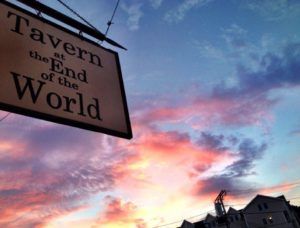BYCU

Background music or TV with the sound on?
The bar in English-speaking countries traces its roots back to Roman Britain where drinking establishments flourished. The establishments declined with Rome, but they came back in the Middle Ages, largely through the efforts of monasteries to provide for travelers. By the fifteenth century, three different drinking establishments were found in England: inns, which provided rooms for travelers; taverns, which provided food and drink; alehouses, which solely provided beer and ale.
What I wonder is, "Why the taverns?" Inns provided necessary beds. Alehouses were often necessities for the poor, a place where they could get ale as a substitute for water (that was often polluted and dangerous). But why taverns?
The taverns were the places where the professional classes met to eat, drink, and relax. Dr. Samuel John was a big fan of the tavern and the fine conversation he could find there: "No, Sir; there is nothing which has yet been contrived by man, by which so much happiness is produced as by a good tavern or inn."
So, people went to the taverns to congregate and meet others. If that's the essence of a tavern, then music–at moderate volume–should be preferred over TV (TV being almost as inherently anti-social as tear gas).
A similar thing goes for bars in the United States. After the Pilgrims came in 1620, taverns were among the first structures erected, and there were dozens in Boston alone by the 1680s. The taverns were accommodations for travelers, but they were also the forum for social intercourse. Daniel Dorchester, an anti-drinking historian of the nineteenth century, described the tavern scene of the early American years as places where "motley assembly . . . came together to hear the news, gossip and talk politics."
So basically, taverns have always been used for socializing. If that's true, background music should be preferred to TV.
